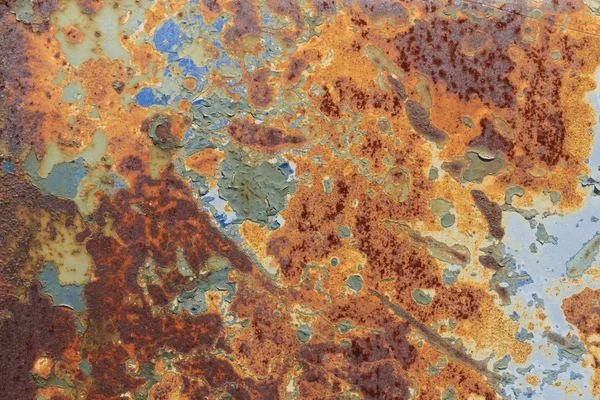Chemical Guardians: Unveiling The Power Of Corrosion Inhibitors In Industrial Applications
In the intricate tapestry of industrial landscapes, where metals bear the brunt of relentless environmental forces, a silent but potent defender emerges – the corrosion inhibitor. As industrial infrastructure and machinery face the ever-present threat of corrosion, these chemical guardians stand poised, unveiling a formidable power that safeguards against the insidious decay of vital assets.
In this exploration, we delve into the realm of "Chemical Guardians: Unveiling the Power of Corrosion Inhibitors in Industrial Applications," unraveling the mechanisms, applications, and transformative impact these protectors wield in preserving the integrity of critical components. Join us on a journey to unravel the hidden prowess of corrosion inhibitors, essential agents in fortifying industries against the corrosive forces that seek to undermine their resilience.
Understanding Corrosion
Before delving into the role of corrosion inhibitors, it's essential to grasp the mechanisms of corrosion itself. Corrosion is a natural process driven by electrochemical reactions that occur when metals are exposed to environmental factors such as moisture, oxygen, and pollutants. These reactions lead to the formation of corrosion products, weakening the metal and eventually causing structural failure.

The Role of Corrosion Inhibitors: Heralding a New Era
Corrosion inhibitors are specialized chemicals designed to mitigate the corrosive effects on metals. They function by forming a protective layer on the metal surface, acting as a barrier against the corrosive agents in the environment. These chemical guardians operate through a variety of mechanisms, each tailored to the specific conditions of the application.
Passivation: Creating a Shield of Defense
One of the primary mechanisms employed by corrosion inhibitors is passivation. In this process, the inhibitor forms a thin, protective layer on the metal surface, preventing direct contact with corrosive elements. This layer acts as a shield, hindering the electrochemical reactions responsible for corrosion.
Adsorption: Bonding for Protection
Corrosion inhibitors can also operate through adsorption, where the inhibitor molecules adhere to the metal surface, forming a protective film. This film reduces the metal's susceptibility to corrosive elements, effectively slowing down the corrosion process. The strength and stability of this bond play a crucial role in determining the inhibitor's effectiveness.
Diverse Applications: Corrosion Inhibitors in Action
The applications of corrosion inhibitors are diverse and widespread across various industries. Let's explore some key sectors where these chemical guardians play a pivotal role in preserving infrastructure and ensuring operational longevity.
Oil and Gas Industry: Protecting the Lifeblood
In the oil and gas sector, pipelines are the lifelines that transport crude oil and natural gas across vast distances. These pipelines are exposed to harsh environmental conditions, making them susceptible to corrosion. Corrosion inhibitors are injected into the pipelines, forming a protective layer that extends their lifespan and reduces the risk of catastrophic failures.
Manufacturing Plants: Prolonging Machinery Life
Manufacturing plants house a myriad of machinery and equipment, each with its unique susceptibility to corrosion. By incorporating corrosion inhibitors into lubricants and cooling systems, manufacturers can safeguard their machinery, ensuring optimal performance and minimizing downtime due to maintenance.
Automotive Sector: Enhancing Vehicle Longevity
In the automotive industry, corrosion inhibitors find application in protecting the metal components of vehicles. From the chassis to critical engine parts, these inhibitors help extend the lifespan of automobiles by preventing corrosion-induced deterioration.

Types of Corrosion Inhibitors
Corrosion inhibitors come in various types, each tailored to specific applications and environments. These inhibitors play a crucial role in preventing or slowing down the corrosion process by forming protective layers on metal surfaces or altering the electrochemical conditions. Here are some common types of corrosion inhibitors:
- Anodic Inhibitors: Anodic inhibitors work by reducing the rate of oxidation reactions on the metal surface. These inhibitors form a protective layer that hinders the anodic dissolution of the metal. Common examples include compounds containing phosphates, chromates, and nitrates.
- Cathodic Inhibitors: Cathodic inhibitors, on the other hand, operate by suppressing the reduction reactions that occur at cathodic sites. They form a protective layer that impedes the reduction of oxygen or other cathodic agents. Sodium molybdate and zinc phosphate are examples of cathodic inhibitors.
- Mixed Inhibitors: Mixed inhibitors are compounds that combine both anodic and cathodic inhibition mechanisms. This dual-action approach enhances their effectiveness in preventing corrosion. Organic compounds like amines and imidazolines often function as mixed inhibitors.
- Volatile Corrosion Inhibitors (VCIs): Volatile corrosion inhibitors are compounds that vaporize and form a protective layer on metal surfaces. These inhibitors are particularly useful for protecting enclosed spaces and difficult-to-reach areas. VCIs are commonly employed in the packaging and preservation of metal components during storage and transportation.
- Passivation Inhibitors: Passivation inhibitors work by promoting the formation of a passive oxide layer on the metal surface. This layer acts as a barrier against corrosive elements, preventing direct contact with the metal. Nitrites, chromates, and phosphates are examples of passivation inhibitors.
- Organic Inhibitors: Organic inhibitors are often carbon-based compounds that form a protective film on metal surfaces. They are known for their versatility and effectiveness in various environments. Amines, aldehydes, and organic salts are commonly used as organic corrosion inhibitors.
6 Nicholas Drive Dandenong South, Vic 3175 Australia
Phone: 03 9768 2322

